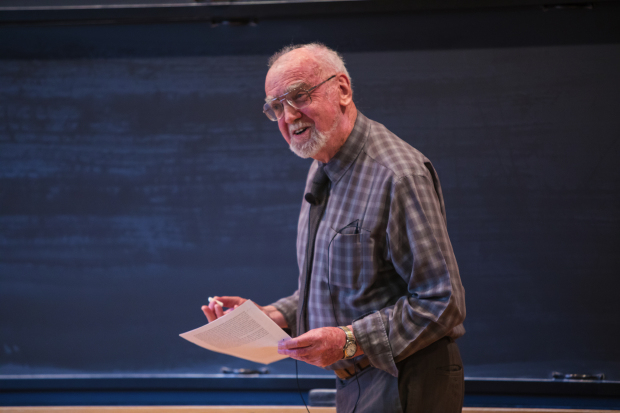
Canadian mathematician Robert Langlands has been named as the winner of the Abel Prize for 2018 "for his visionary programme connecting representation theory to number theory," said the Norwegian Academy of Sciences and Letters on Tuesday.
"Langlands' insights were so radical and so rich that the mechanisms he suggested to bridge these mathematical fields led to a project named the Langlands programme," the academy said in its citation.
The 81-year-old mathematician would receive the financial award of six million Norwegian kroner ($776,000) from Norway's King Harald V at an award ceremony in Oslo on May 22. The prize has been awarded annually since 2003 in memory of the Norwegian mathematics genius Niels Henrik Abel.
This year's recipient Langlands was born in New Westminster, British Columbia, Canada, in 1936. He graduated from the University of British Columbia with an undergraduate degree in 1957 and an MSc in 1958, and from Yale University a Ph.D. in 1960.
Robert P. Langlands's work dated back to January 1967 when he was an associate professor at Princeton, working during the Christmas break. He wrote a 17-page letter to the great French mathematician André Weil, aged 60, outlining some of his new mathematical insights.
"If you are willing to read it as a pure speculation I would appreciate that," he wrote. "If not – I am sure you have a wastebasket handy."
Instead of ending in a wastebasket, his letter introduced a theory that created a completely new way of thinking about mathematics: it suggested deep links between two areas, number theory and harmonic analysis, which had previously been considered as unrelated.
He has held faculty positions at Princeton University and Yale University and is currently a professor at the Institute for Advanced Study in Princeton, the US.He has won several awards for his contribution to the theory of automorphic forms.
Awards and recognitions
The Shaw Prize in Mathematical Sciences
The Nemmers Prize in Mathematics
The Wolf Prize in Mathematics (jointly with Sir Andrew Wiles)
The Leroy P. Steele Prize
The Grande Médaille d'Or of the French Academy of Sciences
The inaugural National Academy of Sciences Award in Mathematics
The Common Wealth Award
The American Mathematical Society's Cole Prize
(With inputs from IANS)








